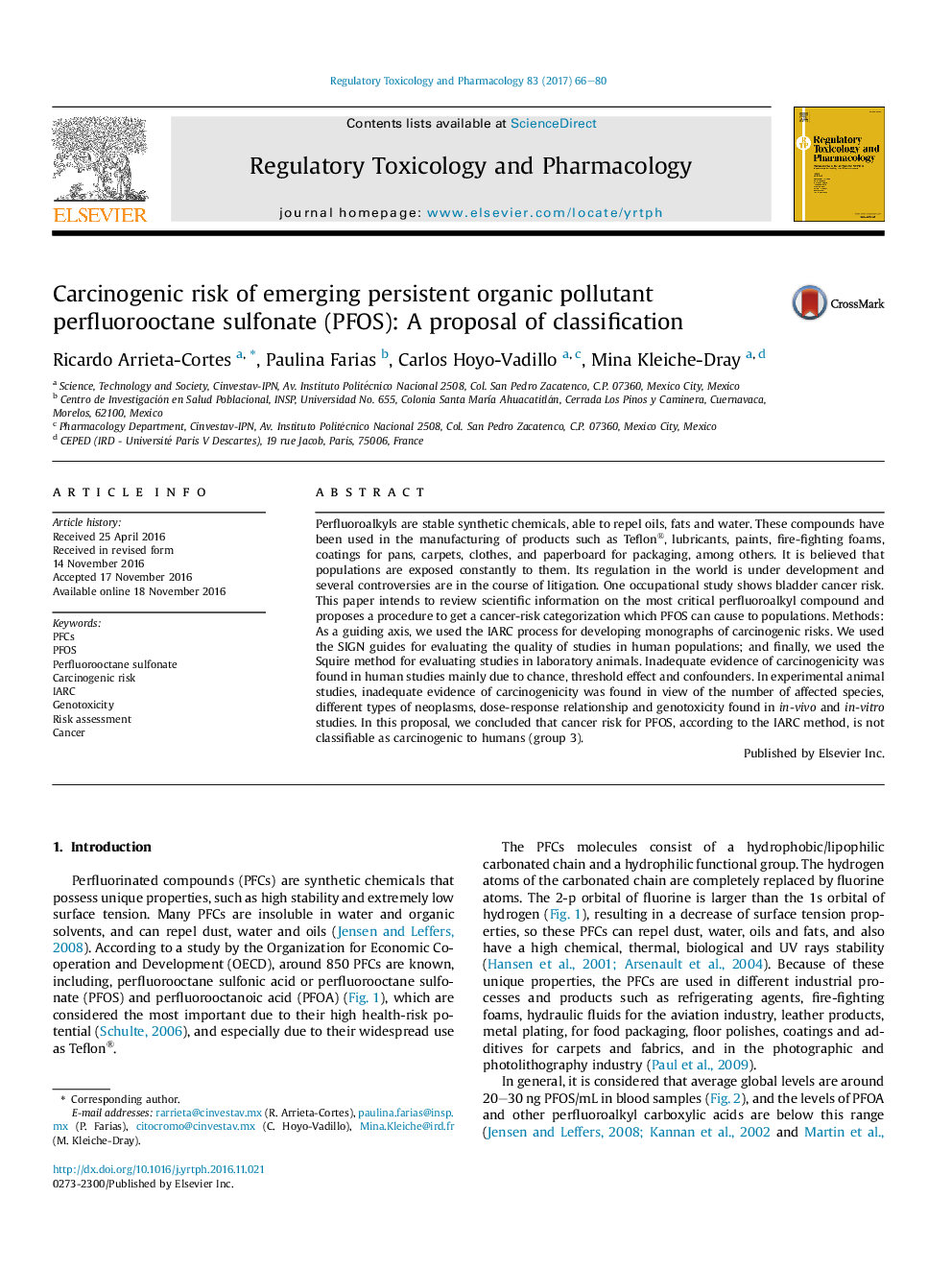| کد مقاله | کد نشریه | سال انتشار | مقاله انگلیسی | نسخه تمام متن |
|---|---|---|---|---|
| 5561227 | 1562120 | 2017 | 15 صفحه PDF | دانلود رایگان |

- Average global levels are around 20-30Â ng PFOS/mL in blood samples.
- Cohort occupational study shows increase in bladder cancer risk in exposed group.
- Rodent test shows that PFOS is a peroxisome proliferator, do not occur in humans.
- Inadequate evidence of carcinogenicity in humans and experimental animals.
- PFOS is a Group 3 agent (not classifiable as to its carcinogenicity to humans).
Perfluoroalkyls are stable synthetic chemicals, able to repel oils, fats and water. These compounds have been used in the manufacturing of products such as Teflon®, lubricants, paints, fire-fighting foams, coatings for pans, carpets, clothes, and paperboard for packaging, among others. It is believed that populations are exposed constantly to them. Its regulation in the world is under development and several controversies are in the course of litigation. One occupational study shows bladder cancer risk. This paper intends to review scientific information on the most critical perfluoroalkyl compound and proposes a procedure to get a cancer-risk categorization which PFOS can cause to populations. Methods: As a guiding axis, we used the IARC process for developing monographs of carcinogenic risks. We used the SIGN guides for evaluating the quality of studies in human populations; and finally, we used the Squire method for evaluating studies in laboratory animals. Inadequate evidence of carcinogenicity was found in human studies mainly due to chance, threshold effect and confounders. In experimental animal studies, inadequate evidence of carcinogenicity was found in view of the number of affected species, different types of neoplasms, dose-response relationship and genotoxicity found in in-vivo and in-vitro studies. In this proposal, we concluded that cancer risk for PFOS, according to the IARC method, is not classifiable as carcinogenic to humans (group 3).
Journal: Regulatory Toxicology and Pharmacology - Volume 83, February 2017, Pages 66-80